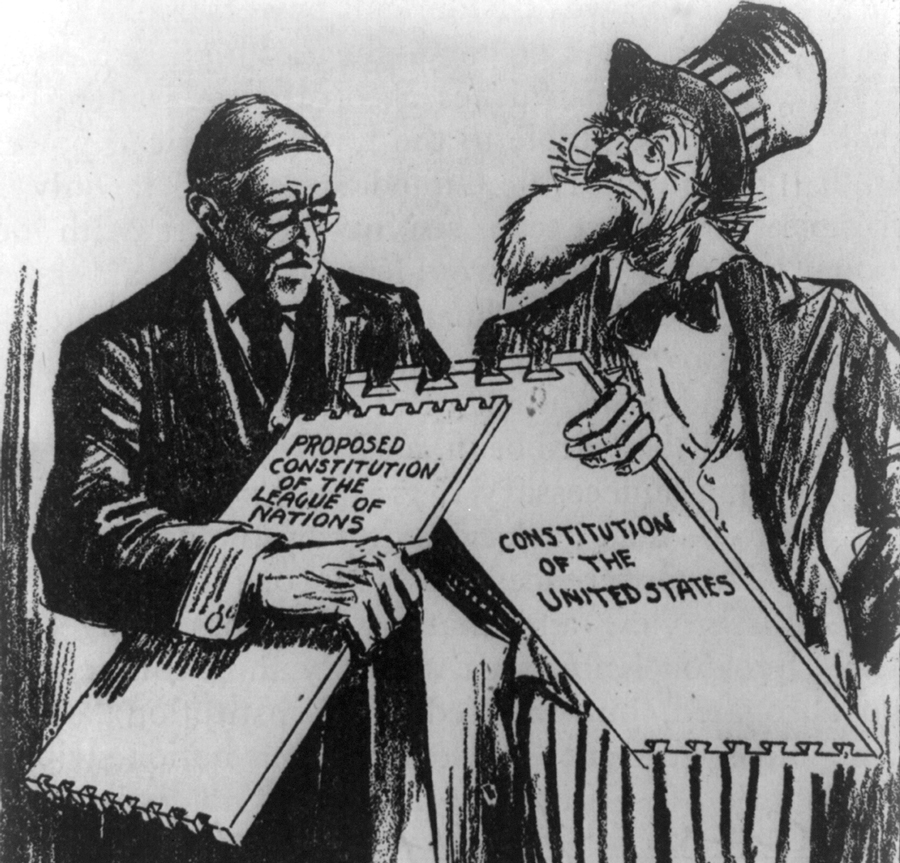US Senate vote threatens to torpedo new League of Nations
New York, 19 November 1919 - The fate of the Treaty of Versailles has been thrown into doubt, after the United States Senate voted to adopt a number of reservations to the covenant of the League of Nations earlier this week.
One of the most highly publicised objections relates to Article X of the covenant, which provides that members of the League undertake to respect and preserve against external aggression the territorial integrity and existing political independence of all members of the League.
This is seen, by those who drafted the covenant, as a cornerstone to protecting the peace established following the armistice in November 1918.
Opposition to the article in the Senate stems from the view that that this could potentially come into conflict with the US Constitution, which states that Congress has the sole power to deploy the military. Therefore the Senate’s reservation insists that the United States ‘assumes no obligations to preserve the territorial integrity or political independence of any country; or to interfere in controversies between nations – whether members of the League or not...’
For President Wilson this completely undermines one of the document’s core ideals; it would not simply alter the Treaty; it would nullify it.
That also appears to be the view from London, where Lord Robert Cecil, who was involved in the drafting of the covenant of the League of Nations, told the House of Commons that the Senate reservation constituted a rejection. Cecil argued that notwithstanding the grave situation created, the League needed to be progressed as it represented the sole hope of a permanent peace. ‘Certainly we desired American co-operation’, he said, ‘but if the United States decided not to take part in this great international effort, then we must go on, the burden being greater upon us and upon other nations.’
Irish attitude
American opposition to the covenant will be welcomed in Sinn
Féin circles. Éamon de Valera, who is still touring
the United States, recently observed that the adoption of the
treaty as it stands would solidify Ireland's place within the
United Kingdom, and would deny Ireland any support from the
US – whose president
championed the idea of self-determination for small nations
during the war – or any other member state.
This was echoed by J. McGuerin, chairman of a rally of the United Irish American societies in the Bronx, who yesterday declared the League of Nations proposals in their original form to be ‘complete autocracy’.
He said: ‘There is not to be found in the Covenant a single line or phrase giving subject peoples a right to be heard as to their independence or freedom. We were promised a democratic League, a League based upon self-determination and the rights of the people. But this scheme promulgated by President Wilson was shoved aside at Versailles, and a soulless, unconscionable autocracy established.’
[Editor's note: This is an article from Century Ireland, a fortnightly online newspaper, written from the perspective of a journalist 100 years ago, based on news reports of the time.]





















